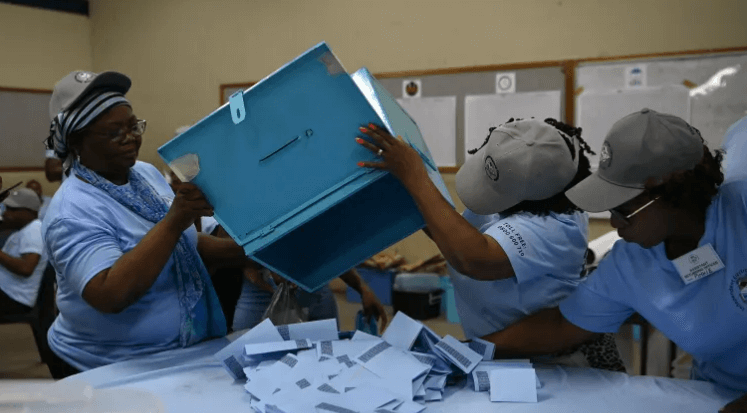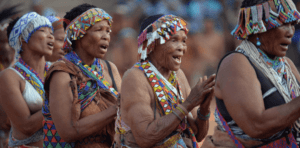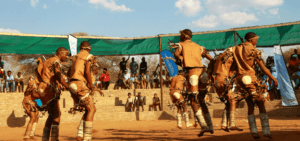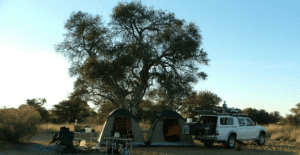Botswana’s Ruling Party Ousted After 58 Years: A New Era Dawns in Southern Africa

In an unprecedented electoral shakeup, Botswana’s ruling Botswana Democratic Party (BDP), which has governed the country since independence in 1966, has lost its grip on power. The results, being heralded as a “political earthquake,” mark a pivotal moment in the diamond-rich nation’s history, as Batswana voted decisively for change.
Botswana’s Historic Political Shift: Key Election Results
Preliminary results as of early Friday reveal that the BDP, a longstanding powerhouse in Botswana’s political landscape, has secured only one parliamentary seat. Meanwhile, the opposition coalition, the Umbrella for Democratic Change (UDC), led by prominent human rights lawyer Duma Boko, has surged ahead, winning 20 seats with a majority within reach. Early projections indicate the UDC will exceed the 31-seat threshold needed to govern, with its victory expected to be finalized in upcoming official announcements from the Independent Electoral Commission (IEC).
This election has not only placed the UDC in a strong position but has also highlighted a dramatic shift in voter sentiment. Alongside the UDC, other opposition parties, including the Botswana Patriotic Front (BPF)—backed by former President Ian Khama—and the Botswana Congress Party (BCP), have collectively secured significant victories, capturing 31 of Botswana’s 61 parliamentary seats. This majority ensures that the ruling BDP has no viable path to retaining control, potentially signaling the end of an era for the once-dominant party.
Why the BDP Lost: Economic Woes and Rising Unemployment
Botswana’s election outcome comes as no surprise to many analysts who have tracked the country’s recent economic struggles and mounting youth unemployment. President Mokgweetsi Masisi, who took the helm in 2018, faced a challenging campaign, with his message of continuity and “change from within” failing to resonate with voters. The BDP’s loss reflects public frustration with stagnant economic growth and the unfulfilled promise of jobs, a common concern among young voters who make up a large portion of the electorate.
The election’s verdict underscores the desire among Batswana for tangible reforms and opportunities to improve livelihoods, something the opposition parties addressed in their campaigns. Under Boko’s leadership, the UDC has promised policies focused on economic revival, social equity, and robust democratic governance, capturing the public’s demand for a new direction.
Duma Boko Set to Lead Botswana: Celebrations and Optimism Across the Nation
As the election results continue to unfold, UDC supporters are celebrating nationwide, particularly in Botswana’s capital, Gaborone. There, citizens from all walks of life have taken to the streets, eager for the future under a new government. With a coalition majority in parliament, the UDC leader Duma Boko is expected to be elected as Botswana’s next president when parliament convenes for the first time, officially marking the beginning of his administration.
For many, Boko’s ascendance signals a fresh chapter for Botswana. Boko, a seasoned lawyer and champion of human rights, has long advocated for reforms aimed at reducing inequality and expanding economic opportunity. His vision for the nation aligns with many citizens’ hopes for job creation, infrastructure development, and stronger social services, all of which the UDC highlighted in its campaign.
What’s Next for Botswana? The Road Ahead for the UDC and Duma Boko
The road ahead will be challenging, as the new government seeks to address the longstanding issues that led to the BDP’s decline. Economic reform, improved job prospects, and transparent governance will be top priorities for the incoming administration, and with a strong mandate from the electorate, the UDC faces high expectations to deliver on its promises.
The UDC’s victory reflects a broader regional trend of shifting political dynamics in southern Africa, where citizens increasingly call for accountable leadership and reforms to tackle economic stagnation. Botswana, known for its relative stability and economic success within the region, now joins this wave of democratic change, potentially setting an example for other nations seeking to revitalize governance and economic policies.
Botswana Awaits Official Results as Historic Election Nears Conclusion
Although the final confirmation is expected later Friday, Botswana’s political landscape has already transformed. The UDC’s projected win reflects a decisive break from the past, with Batswana placing their hopes in a new government after more than half a century of BDP rule. As the nation awaits the Independent Electoral Commission’s official announcement, the mood is one of optimism and anticipation, with citizens eager to see how the UDC will chart Botswana’s course in the years to come.
Conclusion
The Botswana election has been a watershed moment, with the people’s choice reshaping the country’s political landscape. For Batswana, this shift represents not only a change in leadership but a deeper hope for revitalized policies and improved opportunities. As Botswana moves forward, all eyes will be on Duma Boko and the UDC to fulfill their promises and steer the country towards a prosperous future.




